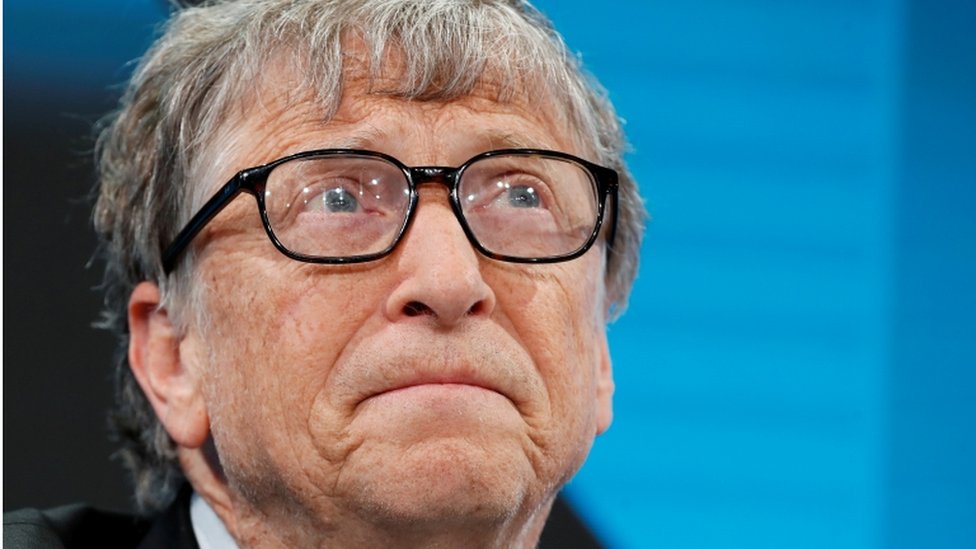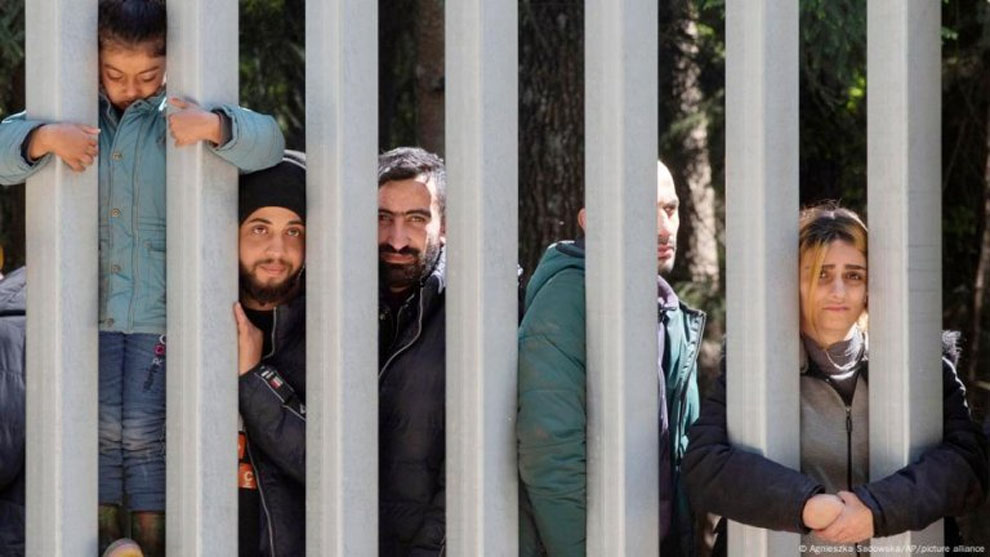International
Iran denies wave of school poisonings, blames ‘enemies’

Iran denies wave of school poisonings, blames ‘enemies’
Iranian authorities have accused the Islamic Republic’s “enemies” of using the suspected attacks to undermine the clerical establishment.
Iran’s intelligence ministry on Friday published a report in which it accused foreign “enemies” and dissidents of fomenting fears over suspected poisonings of schoolgirls. It said the ministry’s investigation found no actual poisoning.
“The enemies’ role in fuelling this crisis is certain and undeniable. Individuals, groups and Western media (especially in Persian language)… have focused on this in the past few months, as well as foreign politicians and international bodies,” said a ministry report carried by state media on Friday.
“In field findings and laboratory investigations … no toxic substance able to cause poisoning was observed … and there have been no deaths or long-term physical conditions,” the report said.
The report warned of “prosecution of individuals, groups, media who accused the government … and aligned themselves with enemies.”
READ ALSO:
-
Incoming Kano govt will revisit dethronement of Muhammadu Sanusi – Kwankwaso
-
Fire razes part of Ooni of Ife palace
-
Resident doctors threaten fresh strike, give FG two-week ultimatum
The intelligence service also accused foreign players like the United States and Israel of playing a role in the cases in order to trigger further anti-government protests in the country.
Public outrage and mass protests
The suspected poisonings began in November in the holy Shi’ite Muslim city of Qom and spread to 28 of Iran’s 31 provinces, according to activist HRANA news agency.
Throughout the country, schoolgirls have been treated in hospitals, with doctors speaking of gas poisoning.
The incidents prompted some parents to take children out of school and protest.
The authorities’ hesitant handling of the cases drew sharp criticism in Iran. It took months for the state leadership to comment on the incidents.
The Islamic nation’s Supreme Leader Ayatollah Ali Khamenei recently said the perpetrators should be severely punished.
The string of suspected poisonings came more than five months into nationwide protests following the death in police custody of a young Iranian Kurdish woman, 22-year-old Jina Mahsa Amini who had been arrested for an alleged breach of strict dress rules for women.
The demonstrations posed one of the biggest challenges to Iran’s clerical rulers since the 1979 Islamic revolution.
Human rights organization Amnesty International recently called for more clarification on the suspected poisonings. In a statement earlier this month, Amnesty spoke of “ongoing gas attacks” that appear to be “a coordinated campaign to punish schoolgirls for their peaceful participation in nationwide protests.”
Iran denies wave of school poisonings, blames ‘enemies’
los/sri (AFP, AP, Reuters, dpa)
International
AI will replace doctors, teachers, others in 10 years – Bill Gates

AI will replace doctors, teachers, others in 10 years – Bill Gates
Bill Gates, a co-founder of Microsoft, has claimed that improvements in artificial intelligence (AI) over the next decade may render humans superfluous for the majority of work.
In a recent interview with comedian Jimmy Fallon on NBC’s The Tonight Show in February, the billionaire philanthropist discussed how AI may take over many facets of life and business.
Gates remarked that expertise is currently “rare”, emphasising the continuous reliance on human specialists in industries such as medicine and education.
For example, we continue to rely on highly trained individuals, such as “a great doctor” or “a great teacher”, whose knowledge cannot be simply replaced by AI.
However, “with AI, over the next decade, that will become free, commonplace — great medical advice, great tutoring,” Gates said.
READ ALSO:
- Senate seeks FG’s immediate intervention to slash data prices
- Reno Omokri: Nigeria gives more opportunities than US, Britain, Canada
- Driver remanded for causing Osun varsity students’ death
In other words, Gates believes that the world is entering a new era of “free intelligence”, as he described in a recent interview with Harvard University professor and happiness specialist Arthur Brooks.
According to Gates, this transition will result in rapid breakthroughs in AI-powered technology, making them more accessible and affecting almost every part of our lives.
These breakthroughs will vary from more effective treatments and diagnoses to widely available AI instructors and virtual assistants.
“It’s very profound and even a little bit scary — because it’s happening very quickly, and there is no upper bound,” Gates told Brooks.
The discussion of how humans will fit into an AI-powered future continues.
Some analysts suggest that artificial intelligence will improve human productivity rather than completely replacing labour, hence driving economic growth and creating new jobs.
However, Microsoft AI CEO Mustafa Suleyman cautions that technological improvements in the coming years will disrupt the nature of most occupations across nearly all industries, potentially exerting a “hugely destabilising” influence on the workforce.
AI will replace doctors, teachers, others in 10 years – Bill Gates
International
Poland suspends migrants’ right to apply for asylum

Poland suspends migrants’ right to apply for asylum
Poland has temporarily suspended the right of migrants arriving in Poland via its border with Belarus to apply for asylum.
Prime Minister Donald Tusk announced it would be happening after the controversial bill, which will allow Polish authorities to suspend this right for up to 60 days at a time, was signed into law by President Andrzej Duda.
Tusk had said it would be adopted “without a moment’s delay” while Duda said the changes were needed to strengthen security on the country’s borders.
But the law has been criticized by rights groups including Human Rights Watch, which said the EU should take legal action against Poland if it was implemented.
The group urged the country’s parliament last month to reject the bill, saying it “flies in the face of Poland’s international and EU obligations” and could “effectively completely seal off the Poland-Belarus border, where Polish authorities already engage in unlawful and abusive pushbacks”.
READ ALSO:
- Trump slaps 25% tariffs on car imports to US
- Reps pass bill to strip Vice President, governors, deputies of immunity
- Businessman collapses in court during trial over $578,000 cash seizure
The government said previously the suspension would only be applied temporarily to people who pose a threat to state security, for example large groups of aggressive migrants trying to storm the border.
Exemptions will be made for unaccompanied minors, pregnant women, the elderly or unwell, anyone exposed to “real risk of serious harm” by being returned and citizens of countries accused of conducting the instrumentalization of migration – like Belarus
Tusk has dismissed criticism from human rights groups.
“Nobody is talking about violating human rights, the right to asylum, we are talking about not granting applications to people who illegally cross the border in groups organised by Lukashenko,” he said in October.
Since 2021, Poland, Lithuania, Latvia and Finland have seen a huge increase in the number of people crossing into their countries illegally from Belarus and Russia.
Polish authorities have sent thousands of troops and border guards to police its border with Belarus and built a 5.5-metre-high steel fence along 186 km of the frontier where at times several thousand migrants have been left stranded.
Rights groups estimate more than one hundred people have died on the borders between Belarus and Poland, Lithuania and Latvia since 2021.
EU eastern flank countries and the European Commission have accused the Belarusian and Russian authorities of weaponising migration to create a new route into the EU to destabilize the bloc.
Poland suspends migrants’ right to apply for asylum
BBC
International
Trump slaps 25% tariffs on car imports to US

Trump slaps 25% tariffs on car imports to US
US President Donald Trump has slapped new 25% import duties on autos and car parts entering the US, threatening to escalate the global trade war.
Trump said the additional duties would go into effect on April 2, with levies on businesses importing autos beginning the next day. Charges for parts are scheduled to begin in May or later.
The president stated that the proposal would result in “tremendous growth” for the auto industry, saying that it would boost jobs and investment in the United States.
However, analysts believe the measure will result in a temporary stoppage of significant US vehicle production, higher costs, and strained relations with allies.
Last year, the US imported approximately eight million cars, accounting for approximately $240 billion (£186 billion) in trade and roughly half of total sales.
Mexico is the top foreign supplier of cars to the US, followed by South Korea, Japan, Canada, and Germany.
Trump’s latest move could disrupt global car trade and supply chains. Many US car companies have operations in Mexico and Canada under the terms of the long-standing free trade agreement.
READ ALSO:
- Reps pass bill to strip Vice President, governors, deputies of immunity
- Businessman collapses in court during trial over $578,000 cash seizure
- Fire guts Onitsha market, many shops, goods destroyed
However, the new taxes on parts from Canada and Mexico are exempt until US Customs and Border Patrol establish a method to assess the duties, according to the White House. Every day, billions of dollars in goods cross borders between neighbouring countries.
On Wednesday, General Motors’ stock fell almost 3%. The sell-off spread to other firms, including Ford, following the president’s speech that reaffirmed the tariffs.
When asked during a news conference if there was any chance he would change his mind, Trump responded no, later adding, “This is permanent.”
“If you build your car in the United States there is no tariff,” he said.
Japanese Prime Minister Shigeru Ishiba stated that his government would consider all measures in reaction to the taxes.
Japan, home to several major automakers, is the world’s second-largest vehicle exporter.
Japanese automakers’ shares, including Toyota, Nissan, and Honda, sank in early trading in Tokyo.
A tariff is a levy on imports levied by the government and paid by the company importing the goods.
Trump has welcomed the instrument, intending to use it to target a wide range of imported goods as part of a larger effort to defend American industries and increase production.
However, while the rules can protect domestic industries, they also increase costs for businesses that rely on imported parts, such as carmakers.
According to the Anderson Economic Group, 25% tariffs on parts from Mexico and Canada alone could increase the cost of a car by $4,000 to $10,000, depending on the type.
Trump slaps 25% tariffs on car imports to US
-

 metro2 days ago
metro2 days agoAttack on Mufty of Ilorin: Onikijipa Family Charges Stakeholders to Call Sheikh Habibullahi Al-Ilory to Order
-

 Health2 days ago
Health2 days agoNigerian doctor pioneers W’Africa first robotic prostate cancer surgery
-

 metro2 days ago
metro2 days agoFubara: Supreme Court reacts to photo of Justice Agim with Wike
-

 metro2 days ago
metro2 days agoUNIOSUN mourns as 5 students die in auto crash
-

 metro1 day ago
metro1 day agoHow ritualists, native doctor drugged, murdered underage sisters in PH – Police
-

 International1 day ago
International1 day agoCanada removes bonus ranking points for job offers in Express Entry system
-

 metro6 hours ago
metro6 hours agoJUST-IN: Ex-Oyo gov Ajimobi’s first child Bisola dies At 42
-

 metro2 days ago
metro2 days agoAgain Obasanjo accuses federal lawmakers of bribery













